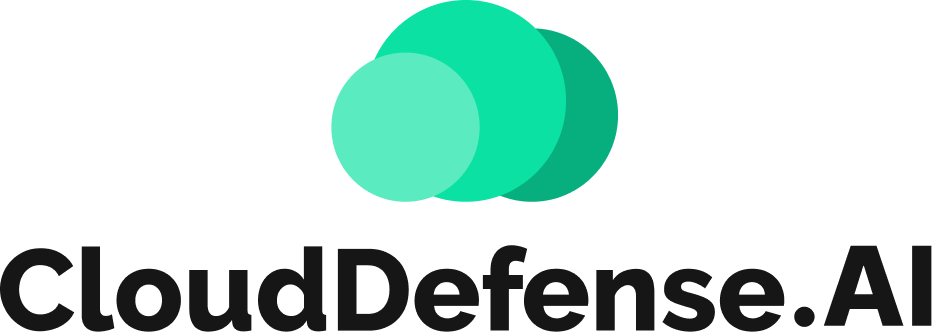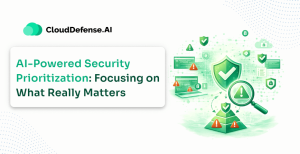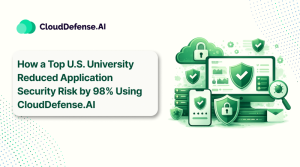APIs have revolutionized software by enabling smooth communication between applications, but they’ve also become prime targets for cyberattacks.
According to Gartner, 90% of web apps expose more APIs than their user interfaces, increasing vulnerability. Ensuring API security is crucial, and with numerous tools available, choosing the right one is vital.
This article will guide you in selecting the best API security solution for your business, offering firsthand insights and recommendations on the top API security solutions for 2025, based on personal experiences.
To start here is a sneak peek at the 10 best API security tools:
- CloudDefense.AI
- Qualys Web Application Security
- Orca API Security
- StackHawk
- Checkmarx
- AppCheck
- Cloudflare
- Google Apigee Sense
- Gravitee
- ImmuniWeb
Whether you’re a seasoned expert or just starting, this guide will empower you to make well-informed decisions in strengthening the security of your applications.
What to look for in API Security Testing Tools?
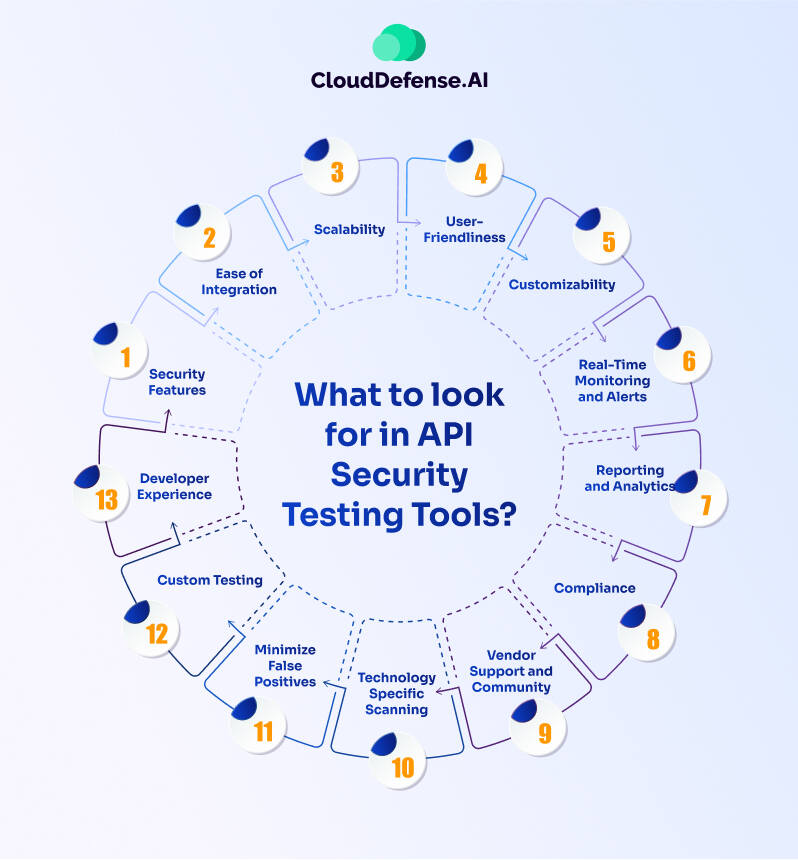
Before you start searching for API security testing tools, you need to consider the criteria that we have mentioned below to ensure that your chosen solution aligns with your organization’s needs and requirements.
Security Features
Prioritize tools that offer complete security features such as authentication, authorization, encryption, and threat detection. Ensure the tool covers a wide range of security aspects to protect your APIs effectively.
Ease of Integrationa
Choose a platform that seamlessly integrates with your existing systems and infrastructure. Compatibility with your current technology stack will streamline the implementation process and reduce potential disruptions to your workflows.
Scalability
Opt for a solution that can accommodate the growth of your business and handle an increasing number of APIs. Scalability ensures that your security testing tool remains effective as your organization expands.
User-Friendliness
Look for a tool with an intuitive user interface and clear documentation, making it easy for both technical and non-technical users to operate. A user-friendly tool enhances productivity and reduces the learning curve for your team.
Customizability
Choose a vendor that offers customization options to tailor the tool to your specific needs and use cases. Customizability allows you to adapt the tool to unique security requirements and workflows within your organization.
Real-Time Monitoring and Alerts
Prioritize tools that provide real-time monitoring of API activity and deliver alerts for any suspicious behavior or security threats. Real-time insights enable proactive threat mitigation and enhance overall security posture.
Reporting and Analytics
Select a tool that offers detailed reports and analytics to help you gain insights into API usage patterns and security status. Comprehensive reporting capabilities empower informed decision-making and facilitate compliance with regulatory requirements.
Compliance
Ensure that the tool complies with relevant regulations and standards such as GDPR or HIPAA. Robust compliance features demonstrate the vendor's commitment to data security and regulatory adherence.
Vendor Support and Community
Look for a vendor that offers reliable support services and maintains an active community of users. Strong vendor support and community engagement provide valuable resources for troubleshooting issues and sharing best practices.
Technology-Specific Scanning
Choose a tool that offers technology-specific scanning for different types of APIs (e.g., REST, GraphQL, SOAP). This ensures accurate and efficient testing by sending the right kind of requests to each API.
Minimize False Positives
Prioritize tools that minimize false positives, as they can create unnecessary work for engineering and security teams. Accurate testing results improve the efficiency of vulnerability identification and remediation efforts.
Custom Testing
Select a tool that supports custom security testing for business logic vulnerabilities and application-specific features. Custom testing capabilities enable a thorough assessment of unique security risks within your APIs.
Developer Experience
Look for a developer-first security tool that integrates seamlessly into CI/CD pipelines and is easy for developers to use. Features such as cURL command generation, CI/CD automation, and local test execution enhance developer productivity and engagement in the security process.
10 Best API Security Tools in 2025
A wide range of API security tools are available in the market that come with varying features and capabilities. It is understandable if you need clarification with all the options available.
All the API security testing tools mentioned on this list have been picked based on the criteria that were mentioned above.
If you are in a rush, consider referring to this detailed list below that compares the tools, their key features, use cases & pricing.
Tools | Key Features | Ease of Use | Pricing |
| It has an intuitive interface and easy to setup | A free demo is available. Contact for pricing. | |
Qualys Web Application Security |
| Requires expertise for in-depth analysis | $$$ |
Orca API Security |
| Requires cloud expertise for setup | $$$$$ |
StackHawk |
| Requires familiarity with CI/CD tools for automation | $$$$ |
Checkmarx |
| Steep learning curve for newcomers | $$$ |
AppCheck |
| Learning curve with scriptable browser interface | $$$$ |
Cloudflare |
| Initial setup may have a learning curve | $$$$$ |
Google Apigee Sense |
| Advanced features may require familiarity with APIs | $$$ |
Gravitee |
| Requires technical expertise for setup | $$$$$ |
ImmuniWeb |
| AI-driven approach may require learning curve | $$$ |
Please note that the pricing may vary depending on factors such as organization size, deployment scale, and specific feature requirements. Contacting the respective vendors for accurate pricing details is recommended.
CloudDefense.AI

CloudDefense.AI 
CloudDefense.AI is an industry-leading CNAPP that also offers a powerful API scanning tool designed to strengthen your applications against emerging threats. CloudDefense.AI offers you a faster security option that is more precise compared to other players in the market. With CloudDefense.AI’s API scanner in your arsenal, you don’t need to worry about the many vulnerabilities and misconfigurations that can jeopardize your application’s ecosystem.
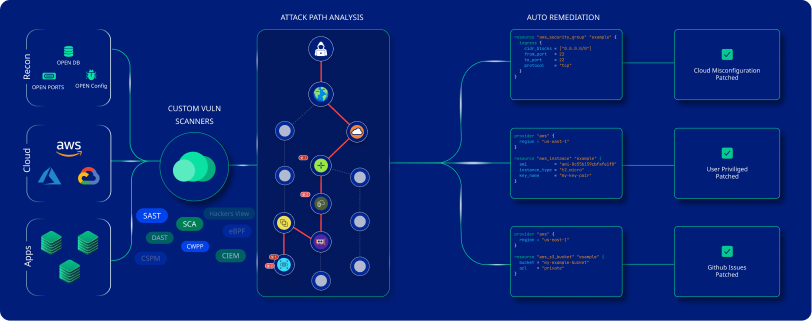
Why Choose CloudDefense.AI?
Choose CloudDefense.AI for superior API security. With OWASP’s top 10 threat coverage, intuitive interface, and quick setup, it ensures precise vulnerability detection. Globally trusted, it integrates smoothly, leaving you to focus on innovation while it secures your APIs effortlessly.
Features that Standout:
Runtime applications are scanned thoroughly, detecting vulnerabilities without the need for additional installations.
It covers the OWASP Top 10 security threats and other potential risks, ensuring optimum security for APIs.
CloudDefense.AI integrates into your existing security tools, regardless of the programming language used in your applications. Whether it's Python, Java, or JavaScript, the platform's API scan functionality automatically identifies and addresses issues.
It has an agent-free approach that ensures swift deployment with pinpoint accuracy, providing a comprehensive API inventory in no time.
Gain invaluable insights into API vulnerabilities categorized by severity levels, empowering your team to prioritize and address potential risks efficiently.
CloudDefense.AI always keeps its shoulders aligned with evolving OWASP guidelines, ensuring your applications meet industry best practices and compliance requirements.
Continuous updates are provided, guaranteeing effective security measures against emerging threats in real-time.
Pros

CloudDefense.AI's API scanning tool offers unparalleled coverage, leaving no room for vulnerabilities across your application ecosystem.

Its optimized scans align with OpenAPI specifications, providing complete protection against a range of threats.

The platform's highly intuitive interface makes it easy for organizations to navigate and utilize its features effectively.

From API security insights to vulnerability severity prioritization, CloudDefense.AI empowers users with actionable insights for security management.

By uniting your CI/CD pipeline, CloudDefense.AI streamlines API remediation processes, shrinking timelines and enhancing efficiency.

Its visualizations of data flow and insightful attack surface mapping offer seamless integration, enabling organizations to address vulnerabilities swiftly.
Cons

The platform has a wide range of features and can be complex to understand for new users.
Ready to elevate your API security? Start your free trial with CloudDefense.AI today!
Qualys Web Application Security
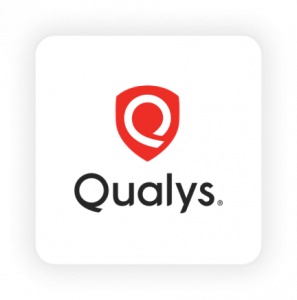
Qualys Web Application Security
Qualys Web Application Scanning is a tool designed to dive deep into web applications, identifying and flagging vulnerabilities. Its advanced scanning capabilities ensure that even the most minor security loopholes are brought to light, reinforcing its reputation as a leader in the field of web application security.
Pros

The tool's ability to reduce false positives ensures that organizations can trust the results, leading to more efficient allocation of resources towards addressing genuine security vulnerabilities.

With continuous monitoring capabilities, Qualys provides uninterrupted protection, enabling organizations to stay vigilant against potential threats at all times.

Integration with leading cloud providers enhances the tool's versatility, making it adaptable to different environments and infrastructure configurations.
Cons

Utilizing Qualys Web Application Scanning to its full potential may require some level of expertise, particularly for in-depth analysis and interpretation of scan results.

The interface of Qualys Web Application Scanning may pose challenges for newcomers, requiring a learning curve to navigate effectively and utilize all features efficiently.

While Qualys offers high-end features and capabilities, they may be considered overkill for smaller web applications, potentially leading to underutilization of the tool's functionalities.
Orca API Security

Orca API Security
Orca Security offers a solution designed to provide visibility into the security posture of cloud deployments, making it inherently holistic. With its emphasis on full-stack visibility and commitment to leveraging innovative technologies, Orca Security is renowned as the best-in-class solution for cloud-native API security.
Pros

Orca Security provides comprehensive visibility into cloud environments without traditional scanning limitations, enabling organizations to identify and address security risks across multiple layers effectively.

With its patent-pending SideScanning™ technology, Orca Security delivers deep insights into cloud infrastructure, code, and data layers, facilitating efficient risk identification and mitigation.

Orca Security efficiently identifies risks at multiple layers of cloud infrastructure, enabling organizations to proactively mitigate potential security threats and vulnerabilities.
Cons

Orca Security's primary focus on cloud-native environments may not be suitable for organizations with significant investments in traditional, non-cloud environments.

The lack of upfront pricing information may pose challenges for organizations seeking transparency in pricing and budget planning.

Setting up Orca Security may require a certain level of cloud expertise, particularly for organizations new to cloud-native security solutions.
StackHawk
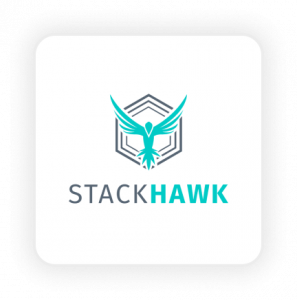
StackHawk
StackHawk is a platform designed to empower developers with tools for API safety. With its explicit emphasis on developers, StackHawk provides functionalities that enable developers to identify and rectify vulnerabilities during the development phase, bridging the gap between development and security.
Pros

StackHawk's developer-centric design and functionalities make it uniquely suited for organizations looking to prioritize developer empowerment in API security initiatives.

The platform provides actionable insights with recommendations for rectifying vulnerabilities, enabling developers to address security issues effectively.

StackHawk's strong automation capabilities enable developers to integrate security checks within their CI/CD pipelines, ensuring that security is prioritized throughout the development lifecycle.
Cons

StackHawk's explicit emphasis on developers may limit its appeal to non-developer personnel within an organization, potentially excluding them from API security initiatives.

To maximize the benefits of StackHawk's automation capabilities, developers may require a certain level of familiarity with CI/CD tools, which could pose challenges for those new to these concepts.

StackHawk's comprehensive functionalities may be overwhelming for small-scale projects or developers new to security concepts, potentially leading to underutilization of the platform's capabilities.
Checkmarx

Checkmarx
Checkmarx is a leading software security solution renowned for its expertise in identifying vulnerabilities within the source code of applications. Through deep code analysis, Checkmarx empowers developers with insights into potential security flaws, enabling them to fortify the foundational layers of software and enhance overall security posture.
Pros

Checkmarx's deep and comprehensive code-scanning capabilities enable organizations to identify and mitigate a wide range of security vulnerabilities embedded within the source code.

Checkmarx's Open Source Analysis (OSA) provides visibility into security and compliance issues associated with open-source components, helping organizations ensure the integrity of their software supply chain.

Checkmarx smoothly integrates with popular development platforms, enhancing collaboration and streamlining the development workflow for developers.
Cons

Checkmarx's extensive features may have a steep learning curve for newcomers, requiring time and effort to fully harness its capabilities.

The extensive capabilities of Checkmarx may be considered overkill for smaller projects or organizations with limited resources, potentially leading to underutilization of its functionalities.

In-depth analysis conducted by Checkmarx on larger codebases may result in potential delays, requiring organizations to consider the trade-off between thoroughness and time-to-market.
AppCheck

AppCheck
AppCheck is an API security testing tool designed to empower organizations with in-depth assessments of their API infrastructure. With its ad-hoc, scheduled, and continuous testing capabilities, AppCheck ensures that APIs remain secure against evolving threats. Developed and maintained by security experts, AppCheck offers extensive coverage of the OWASP Top 10 vulnerabilities, providing organizations with peace of mind regarding their API security posture.
Pros

AppCheck provides in-depth automated testing for ad-hoc, scheduled, and continuous API security assessments, ensuring comprehensive coverage of vulnerabilities.

With its user-friendly interface and high configurability, AppCheck empowers organizations to conduct tailored security assessments with ease.

AppCheck integrates smoothly with bug tracking platforms like JIRA and offers custom integration via JSON API, facilitating collaboration and communication between security teams and developers.
Cons

While AppCheck offers comprehensive coverage of the OWASP Top 10 vulnerabilities, organizations may require additional tools or assessments for visibility into non-OWASP vulnerabilities specific to their API environment.

Organizations may encounter a learning curve when using the scriptable browser interface for authentication, particularly for teams unfamiliar with this approach.
Cloudflare
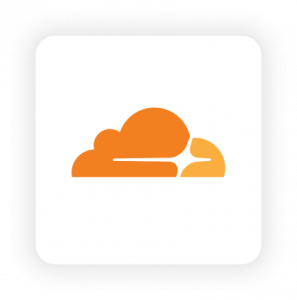
Cloudflare
The Cloudflare API Gateway is a solution tailored to protect APIs and ensure their optimal performance. Whether you’re a seasoned professional or new to the world of API security, Cloudflare API Gateway offers a robust set of features to protect your endpoints and streamline your API management processes.
Pros

Cloudflare API Gateway offers a wide range of security features, including DDoS prevention, brute-force attack mitigation, authentication, and payload scanning, ensuring robust protection for APIs.

With its intuitive interface and user-friendly design, Cloudflare API Gateway caters to users of all skill levels, making API security accessible to both seasoned professionals and newcomers.

In addition to security features, Cloudflare API Gateway also focuses on optimizing API performance, ensuring that endpoints remain fast, reliable, and efficient.
Cons

While Cloudflare API Gateway is designed to be user-friendly, some users may encounter a learning curve when initially setting up and configuring the platform.

Depending on existing infrastructure and workflows, integrating Cloudflare API Gateway into existing systems may require careful planning and configuration.
Google Apigee Sense
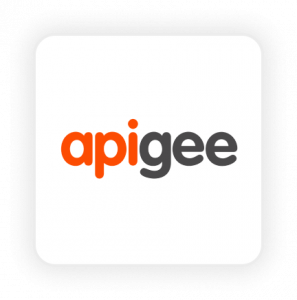
Google Apigee Sense
Google Apigee Sense is a cutting-edge platform designed to analyze API traffic, detect anomalies, and provide insights for secure API management. Leveraging advanced analytics and machine learning capabilities, Apigee Sense offers a sophisticated approach to monitoring and understanding API traffic, setting it apart as a leading solution in the industry.
Pros

Apigee Sense's machine learning-driven anomaly detection provides organizations with proactive security measures, detecting potential threats in API traffic before they escalate.

With detailed behavioral API analytics, organizations gain insights into how APIs are being accessed and utilized, enabling them to make informed decisions and mitigate risks effectively.

Apigee Sense smoothly integrates with Google Cloud Platform tools, providing organizations with a comprehensive solution for API management within the Google ecosystem.
Cons

The advanced features and capabilities of Apigee Sense may pose a learning curve for beginners or organizations new to API management and security.

The pricing structure for Apigee Sense may be ambiguous for some organizations, requiring clarification and understanding of specific pricing models and considerations.

While Apigee Sense's integration with Google Cloud Platform tools enhances its functionality, some organizations may prefer a platform-independent solution or may not fully utilize Google's ecosystem.
Gravitee
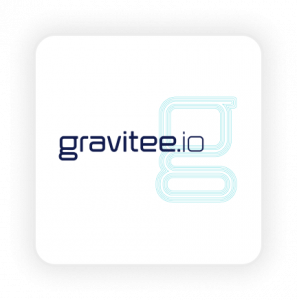
Gravitee
Gravitee offers a versatile platform designed to empower organizations with robust API access management solutions. With its comprehensive feature set and focus on enhancing API access control, Gravitee provides organizations with the flexibility and control they need to manage their API ecosystem effectively.
Pros

Gravitee's decentralized architecture ensures scalability and resilience, making it suitable for organizations of all sizes and complexities.

The open-source nature of Gravitee provides organizations with extensive customization possibilities, allowing them to tailor the platform to their unique requirements.

Gravitee offers integration with a wide range of identity providers, enabling organizations to easily integrate identity and access management systems within the API ecosystem.
Cons

Setting up and customizing Gravitee may require technical expertise, potentially posing a challenge for organizations lacking in-house technical resources.

Organizations accustomed to closed systems may find Gravitee's open-source nature daunting, requiring a shift in mindset and approach to API management.

Gravitee requires regular updates and maintenance to stay secure and efficient, necessitating ongoing attention and resources from organizations.
ImmuniWeb
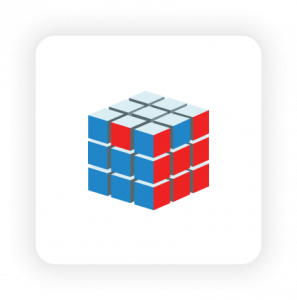
ImmuniWeb
ImmuniWeb offers a specialized platform designed to fortify API security, leveraging advanced AI and machine learning technologies. With its AI-driven approach, ImmuniWeb enables organizations to conduct comprehensive security scans and analyses, providing unparalleled protection against modern threats to APIs.
Pros

ImmuniWeb's AI-driven approach enables organizations to detect vulnerabilities with unparalleled depth and accuracy, providing comprehensive protection against modern security threats.

ImmuniWeb's capability to uncover shadow APIs ensures that organizations have visibility into potentially hidden or unauthorized API endpoints within their infrastructure, enhancing overall security posture.

ImmuniWeb offers versatile security testing capabilities, including mobile app security testing, ensuring that organizations can protect both their APIs and associated mobile applications from security threats.
Cons

ImmuniWeb's advanced AI functionalities may require a learning curve for some users, particularly those unfamiliar with AI-driven security solutions.

ImmuniWeb's comprehensive feature set and AI-driven approach may be overwhelming for beginners or organizations with limited experience in API security.

ImmuniWeb's extensive capabilities may be considered overkill for very small applications or setups, potentially leading to underutilization of its functionalities.
What is API security testing?
API security testing is an application security method, which is used to identify vulnerabilities within your APIs and further remediate them with the help of the engineering team.
Before the inception of API security, penetration testing or manual inspection by enterprise security teams was used to secure APIs. However, there is a current trend towards integrating API security tests into the DevOps pipeline, enabling the detection of security issues at an early stage in the development process.
What can go wrong with APIs?
APIs these days have become essential for the software ecosystem to function smoothly. However, APIs can also introduce a range of security threats to a system. Hackers like to target APIs because often they are not secured properly leading to data leaks and compromised user access.
An API that has been exploited can lead to unauthorized users gaining access to sensitive data, disruption of services, and system hijack. Hackers resort to multiple attack methods to accomplish this task, these may include injection attacks, DDoS attacks, and machine-in-the-middle attacks which are all used to flood the API with unrealistic traffic.
Conclusion
API security is highly neglected in the software development industry and this has resulted in APIs being vulnerable to a wide range of attacks from hackers. If you’re looking to save yourself from the trouble then it is essential that you include an API security tool in your arsenal. Choosing the right tool can be a daunting task with so many options available in the market.
As long as the API security testing tool aligns with the criteria that I have mentioned in this guide and fits perfectly with your company’s requirements, you should go for it. However, in the end we are still going to suggest picking the best option in the market, CloudDefense.AI. You can try it out without even having to pay. Consider signing up for a free demo right now!
